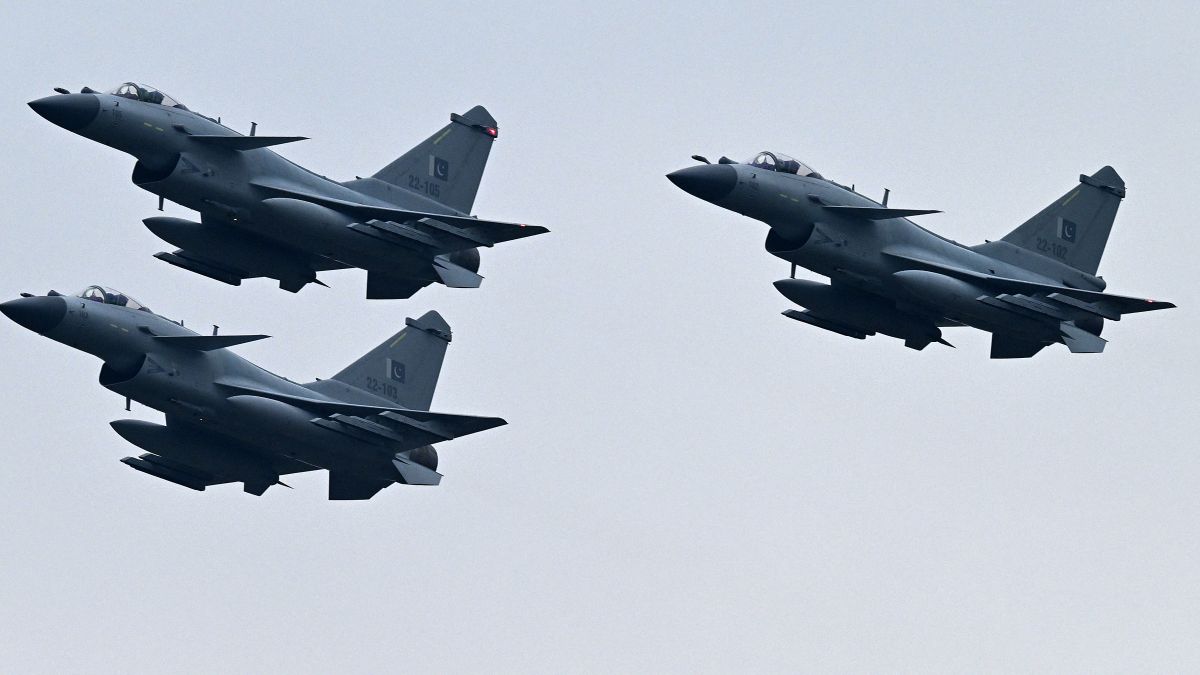Following Pakistan’s Field Marshal Asim Munir , the country’s Chief of the Air Staff, Zaheer Ahmed Baber Sidhu, paid an official visit to the United States, indicating the warming ties between the two nations. The officials noted that Sidhu’s purpose of visit was to further defence cooperation between the two nations as a follow-up to Munir’s visit to the country.
It is pertinent to note that this is the first US trip by a serving Pakistan Air Force (PAF) chief in over a decade, reflecting the re-hyphenisation of the US’s outlook towards India and Pakistan.
“This high-level visit is a strategic milestone in the Pak-US defence partnership. The visit will play a significant role in addressing key regional and global security issues as well as building institutional ties,” the PAF said in a statement on Wednesday.
It further gave an insight into Sidhu’s itinerary, mentioning several important meetings with the top military and political leadership of the US. During his visit to the Pentagon, he met US Secretary of the Air Force for International Affairs Kelly L. Seybolt and Air Force Chief of Staff General David W Allvin.
As per the statement by PAF, the two sides agreed to forge avenues for bilateral military cooperation, mutual affairs, joint training and technology exchange.
Is Pakistan losing trust in China?
The visit comes amid Pakistani concerns about the reliability of Chinese military equipment after it received severe battering by Indian forces during Operation Sindoor.
Pakistan is reportedly interested in acquiring advanced US platforms such as F-16 Block 70 fighter jets, air defence systems, and HIMARS artillery, as it looks to diversify away from Chinese suppliers.
Impact Shorts
More ShortsMeanwhile, China has remained tight-lipped over the performance of its weapons to Pakistan during its 4-day military escalation with India. During a presser on May 30, a Chinese Defence Ministry spokesperson, Zhang Xiaogang , refused to provide any details on the effectiveness of Pakistan’s weapons in the recent military confrontation.
There were reports that India recovered an unexploded PL-15E missile, a Chinese-made beyond-visual-range air-to-air missile. While speaking at the presser, Zhang Xiaogang emphasised China’s hope that both sides will remain calm and restrained to avoid further complicating the situation, sidestepping questions of its defence weapon systems.
When pressed further, the Chinese defence official simply said: “Pakistan received support from China’s air defence and satellite systems, but the performance of these systems was below average.” “We would like to stress that India and Pakistan are neighbours that cannot be moved. We hope both sides will remain calm and restrained to avoid further complicating the situation,” he added.
Why India should be concerned
Meanwhile, Pakistan’s air force chief’s visit to the US can be a matter of concern for India as well. During the hunt for Al-Qaeda terrorist Osama Bin Laden following 9/11, there was de-hyphenisation of the American outlook towards India and Pakistan, i.e, the US stopped putting New Delhi and Islamabad on the same level.
The discovery of Osama near a military training headquarters in Abbottabad further pushed the US towards India. With the second stint of US President Donald Trump in the office and following the military confrontation between India and Pakistan, a new pattern of re-hyphenation is emerging.
When asked about the changing dynamic, former US National Security Adviser John Bolton reiterated the American outlook, emphasising that the US is concerned by China’s influence on Pakistan.
“Well, I think much of the de-hyponization came after 9/11 and and I think Secretary Powell and President Bush worked hard to try and do that. And I think right now the common threat that we see, particularly in the Indo-Pacific region, but really on a global basis, is the China-Russia axis. And so there’s a lot to talk about there,” he told Firstpost's Bhagyasree Sengupta in May.
“It’s distressing to me that Pakistan is so much under the influence of China now. Ultimately, that’s not going to be to their benefit. Ultimately, I think peace on the subcontinent is going to have to require an understanding between India and Pakistan. They’re the two biggest powers. That’s the reality,” he added.
Trump has been adamant about taking credit for the ceasefire, which India has made it clear was a bilateral decision. Meanwhile, Pakistan is serving the credit to America on a platter with Islamabad nominating Trump for the Nobel Peace Prize , earning more brownie points.
Another factor which can be concerning for India is Pakistan’s warm ties with both China and the US. Beijing have been a long-time ally of Islamabad and its feathers are less likely to be ruffled with Pak-US collaborations. Meanwhile, Turkey , another key power in Asia, have expressed its solidarity with Pakistan during India’s Operation Sindoor. Hence, New Delhi will be looking for new allies in the region and reconsolidating its ties with the old ones.


)

)
)
)
)
)
)
)
)



